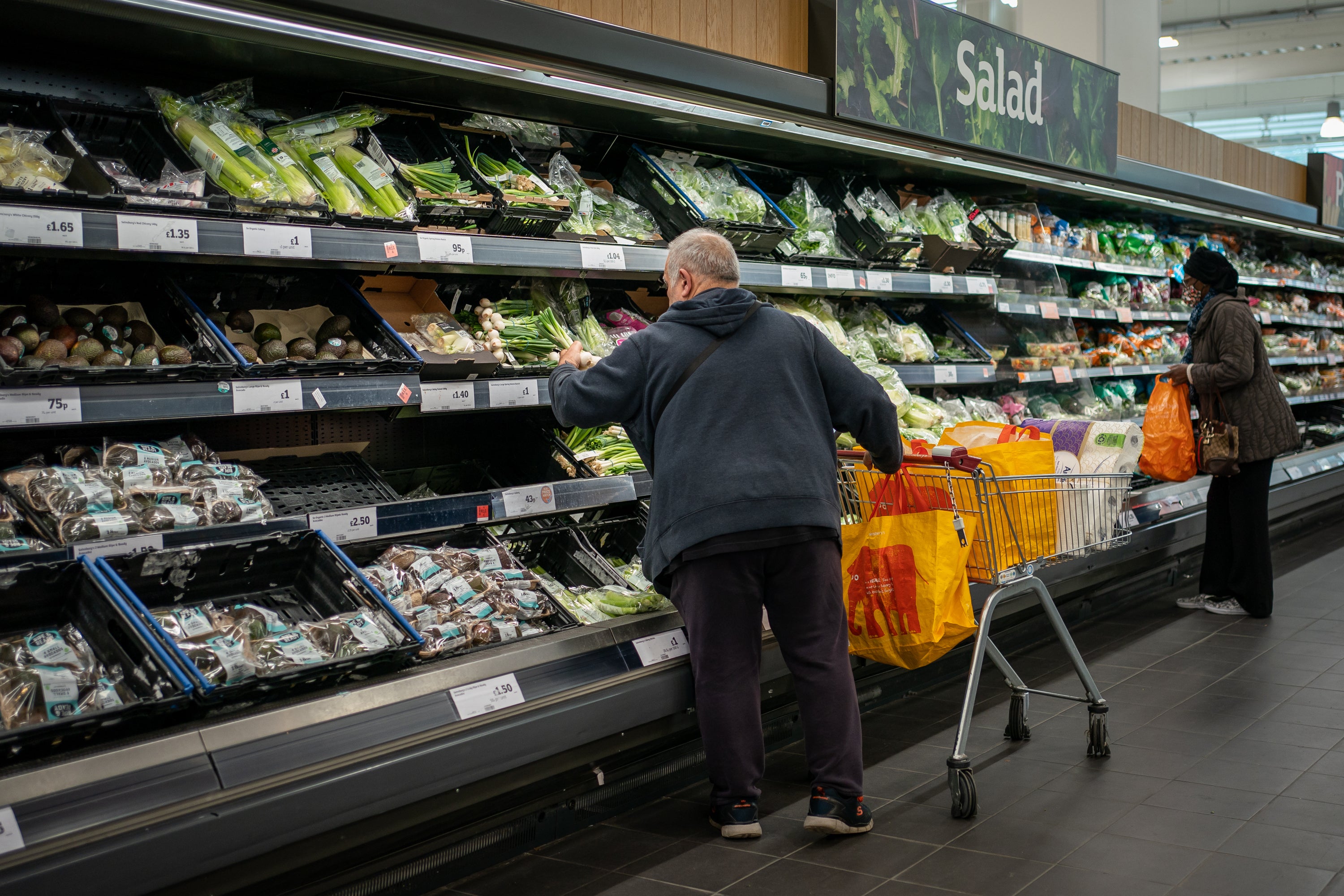Sell fresh uncut produce loose and without best before dates, report recommends
The Wrap study confirmed that uncut fresh produce could be good to eat long after its best before date, and most lasted longer in the fridge.

Your support helps us to tell the story
From reproductive rights to climate change to Big Tech, The Independent is on the ground when the story is developing. Whether it's investigating the financials of Elon Musk's pro-Trump PAC or producing our latest documentary, 'The A Word', which shines a light on the American women fighting for reproductive rights, we know how important it is to parse out the facts from the messaging.
At such a critical moment in US history, we need reporters on the ground. Your donation allows us to keep sending journalists to speak to both sides of the story.
The Independent is trusted by Americans across the entire political spectrum. And unlike many other quality news outlets, we choose not to lock Americans out of our reporting and analysis with paywalls. We believe quality journalism should be available to everyone, paid for by those who can afford it.
Your support makes all the difference.UK retailers should sell fresh uncut fruit and vegetables without best before dates or plastic packaging to prevent 14 million shopping baskets worth of food from going to waste, a report has recommended.
Selling fresh produce loose and without best before dates enabled consumers to buy the right amount for their needs and to use their judgment to decide when items were still good to eat, waste reduction charity Wrap said.
It has recommended that the UK’s major retailers “rethink” how they sell uncut fresh produce, specifically by removing plastic packaging and date labels unless it is shown that they reduce overall food waste.
Wrap’s recommendations follow an 18-month study into five commonly wasted items – apples, bananas, broccoli, cucumber and potatoes – stored in the original packaging and loose, and at different temperatures.
The charity found that selling the five loose and removing best before dates could result in a combined yearly saving of around 100,000 tonnes of household food waste, more than 10,300 tonnes of plastic and 130,000 tonnes of CO2 equivalent.
While most supermarkets already sold some items loose, the new research presented compelling evidence for significantly increasing the practice across a wide range of fresh fruit and vegetables.
The study also confirmed that uncut fresh produce could be good to eat long after the best before date, and most items lasted longer in the fridge.
When stored at 4°C, apples showed no signs of deterioration until two and a half months after their best before date and were still good to eat for some time after that, researchers found.
Broccoli showed no signs of deterioration until more than two weeks after the best before date.
As a result, Wrap is recommending that retailers help shoppers understand the importance of refrigerating appropriate fresh produce below 5°C at home.
Wrap said it had shared its findings and recommendations with the UK’s largest food retailers but acknowledged that implementing them was “likely to take time”.
We need retailers to step up and follow our recommendations
Wrap chief executive Marcus Gover said: “This important research could be a game-changer in the fight against food waste and plastic pollution. We have demystified the relationship between wasted food, plastic packaging, date labels and food storage.
“While packaging is important and often carries out a critical role to protect food, we have proven that plastic packaging doesn’t necessarily prolong the life of uncut fresh produce. It can in fact increase food waste in this case. We have shown the massive potential to save good food from being thrown away by removing date labels.
“We are all living with the reality of the climate emergency and the rising cost of living. This new clarity could not be more timely. We need retailers to step up and follow our recommendations so we can achieve real progress in tackling food waste and plastic pollution. This helps save the planet and us money at the same time – a real win-win.”
Food Standards Agency chairwoman Susan Jebb said businesses must make sure the right date label is applied to their products – and only when required – to help consumers make informed choices and reduce the risk of food-borne illnesses.
She said: “A Best Before date is about quality which means the food will be safe to eat after this date, even if it may not be at its best.
“Business should display Use By dates for food like meat products and ready to eat salads which could be unsafe if left for too long.
“Date labels are important – not only for cutting down on food waste – but for keeping us safe too.”
Wrap also published an updated list of key plastic items for UK Plastics Pact members to remove as far as possible by the end of 2022 alongside the fresh produce packaging, including plastic wrapping for multi-sales of tins, bottles, and cartons, PVC cling film, non-compostable fruit and veg stickers, non-compostable tea and coffee bags and single serving plastic sachets in restaurants.